-
 What to do When Your BP is Low? Top Home Remedies to Manage Low Blood Pressure and Why You Need to Take Low BP Seriously (2020)
What to do When Your BP is Low? Top Home Remedies to Manage Low Blood Pressure and Why You Need to Take Low BP Seriously (2020)
-
 Hungry Late at Night? A Complete Guide for Late Night Snacking: 10 Healthy Late-Night Snacks for Your Hunger Pangs That Don't Disrupt Your Sleep Cycle or Induce Heartburn! (2020)
Hungry Late at Night? A Complete Guide for Late Night Snacking: 10 Healthy Late-Night Snacks for Your Hunger Pangs That Don't Disrupt Your Sleep Cycle or Induce Heartburn! (2020)
-
 When it Come to Health, It's Better to Be Safe Than Sorry: Here are the Best Flu Prevention Techniques for 2020
When it Come to Health, It's Better to Be Safe Than Sorry: Here are the Best Flu Prevention Techniques for 2020
Understanding the Factors That Affect Your Immune System
Genetics
Genetics plays a major part in the strengthening or weakening of your immune systems. This is so, because, there are many infections caused by a patient's host genetics. For example, sickle cell anaemia, cystic fibrosis, colour-blindness, and phenylketonuria are passed on genetically. When these infections attack a human body, they slowly weaken the immune system. Sometimes the loci, like chromosome 2 loci, in the body of a person may not be right, again causing diseases like abnormal monocyte count and coeliac disease. Furthermore, there may not be enough white blood cells in a body due to genetics. So, the less the white blood cell count, the weaker the immune system and vice versa.
Another effect of genetics on the immune system can be the serum protein profile. Now, dysregulated serum protein profiles, that vary from person to person due to genetics, cause an immune response which helps in fighting off a particular disease in a particular area of the human body. Because these vary for every person, these have different effects as well, thus affecting the efficiency of every immune system someway or the other.
Microbial Base Variations
This is another major factor that can either be good or bad for your immune system. This all depends on the types of microorganisms it comes into contact with and their thresholds as well. For instance, when the lymphoid tissues come into contact with the GIT bacterial strains, it helps in their development, whereas, in germ-free animals, these can cause various functional deficiencies as well.
In human beings, on the other hand, these same GIT bacterial strains can cause various disease complications like the Crohn's disease or the ulcerative colitis. Another instance is the bacterial flagellin that helps in the activation of the plasma cells and the production of antibodies. All these things show that this factor affects every person differently by either strengthening their immune systems, weakening it, or not have any major effect on it.
Sex and Age of a Person
You probably know that age affects the immune system of a human being and as you get older, your immune system weakens. This is so because, with time, the white blood cell count decreases as the body isn't able to produce enough of them. Moreover, their fighting power also reduces, hence, resulting in a weak immune system and making you more prone to deadly diseases.
Another factor is the sex of a person. Even though there are some diseases that are more likely to occur in a male body, like the ankylosing spondylitis, many different pieces of research have found out that generally, women are much more likely to get immune-mediated abnormalities. However, because of the immunomodulatory impact of estrogen and of testosterone as a suppressor, women have much more strong immune reactions than men do. Furthermore, men are more likely to get diseases like influenza than women. For these reasons, it can be said that there are some diseases that women are more likely to get whereas others are more common because their immune systems just works differently.
Hygiene
Hygiene does not include just eating the proper food but also taking frequent baths or a shower, once or twice every day. You should also brush your teeth twice or thrice daily, wash your hair with soap or shampoo once every week, wash your hands with soap before any and all activities like eating, working, preparing food and after going to the toilet.
The people who follow all these routines rarely get any diseases. On the other hand, people who do not care for their hygiene are more prone to be affected by diseases like influenza. You may be following all these activities but you may not be doing it correctly. For example, you may be washing your hands frequently but you may not be washing them till the wrist. When the germs from your hands go into your food, they then are transferred to your stomach and the other parts of the body when you eat them. These then impact various cells and tissues. Sometimes, these straight away affect the immune system by hitting the cells like the white blood cells while at other times, these affect various tissues, causing diseases which are to be fought off by the white blood cells. In both cases, it weakens the immune system.
Tips to Boost Your Immunity Naturally for Improved Health
Get Enough Sleep
Sleep and immunity are extremely close. Meaning, if you do not get enough or good quality sleep, you are more likely to be affected by various diseases and infections like the flu and vice versa. Various researches have been made to prove that people who sleep less, adults particularly, are more vulnerable to get diseases than the ones that got a six-hour sleep or more. This is so, because, sleeping helps strengthen your natural immunity and this is why you are suggested by doctors to get a good night's sleep when you are sick. Your immune system fights the germs better when you are asleep than when you are awake. Normally, adults are suggested to get a sleep of more than seven hours. Teenagers, on the other hand, should sleep for about 8 to 10 hours and infants feel best if they sleep for around 14 hours. If you are having trouble sleeping, try staying away from all the screens for an hour before sleeping time. Moreover, you should sleep in a dark room, and go to sleep at the same time each night.
Don't Stress Too Much
This particular tip is one of the most important one if you want to have a healthy and strong immune system. Without a stress-free mind, you simply can not have a good immune system. Various researches have proven that if you have long-term stress problems, your steroid hormone cortisol's levels can increase extremely fast and go really high.
During short-term stress, cortisol prevents your immune system from reacting until after you are stress-free, thereby benefiting you. However, if your cortisol levels are always high, your immune system may not work at all, causing you to get lots of diseases very quickly as it won't be able to protect your body from the germs. If you are going through constant stress, you are advised to find a hobby that you like and stay busy following the hobby. Moreover, you can even try meditating, journaling, or any sports as well. You can even give painting or stressing a try and do this as much as you feel stressed up. Reducing your stress levels will surely help you to get a strong as well as a healthy immune system to help prevent any further damage to your body by the germs.
Increase Your Vitamin C, B6, and E Intake
If you eat diets with a huge intake of particular vitamins, you can really reduce the chances of getting diseases by strengthening your immune system. Various researches have proven that vitamin-C, vitamin-B6, and vitamin-E are the most beneficial if you want a strong immune system.
Vitamin-C boosts your immune system, and therefore, prevents a lot of diseases. Some of the main foods from which you can obtain this vitamin are bell peppers, grapefruits, oranges, strawberries, broccoli, kale, and tangerines, among others. Moreover, you need to take these regularly as your body uses a lot of it. Vitamin-B6, on the other hand, aids various biochemical reactions in your immune system. You can get this from meats like chicken, salmon, tuna, and green vegetables like chickpeas. Vitamin-E, a strong antioxidant helps fight off various infections and can be obtained from seeds, nuts, and even spinach.
Eat a Healthy Diet with Healthy Fats, Lots of Proteins, and Acai Berries As Well
Eating a healthy diet is extremely important for a healthy immune system. First of all, you need to eat foods with only the healthy fats like those in salmon and olive oil as these help decrease inflammation This way, it can prevent diseases like heart disease and diabetes and will help fight off various harmful bacteria and viruses.
Moreover, you will also need to add lots of acai berries to your daily intake. They are a rich source of antioxidants and a simulator of the immune system and are also a possible treatment of various diseases like cardiovascular disease, metabolic syndrome, lower rectum cancer, constipation, yeast infections, Covid-19 Coronavirus, and flu as well. It also increases the PSA levels, thereby benefiting your body.
Furthermore, you will also need to have a daily intake of a lot of proteins. This is so, because, the amino acids present in them help in building, reproducing and maintaining the immune cells, hence strengthening the immune system. So, if you eat lots of proteins, you will be less likely to get attacked by bacteria and virus causing various infections like the flu. Furthermore, you should try and eat either vegetables or white meat instead of red meat as they are more beneficial.
Moderate Alcohol Consumption and Do Not Smoke As Well
Last but surely not the least, you need to stop smoking completely and reduce your alcohol intake as well. These two things only help in weakening your immune system and also have many other hazards. Alcohol can make your immune system dysfunctional and when you drink, your body stays busy trying to detoxify itself than fighting off the germs attacking it. Because of this, your recovery time also lengthens and you are more likely to get severe diseases like acute respiratory distress syndrome, pneumonia, some types of cancers and alcoholic liver disease as well.
You should also not smoke as this increases the likelihood of cancer and also badly affects the immune system. It can cause severe pathogenic immune responses and can also reduce the efficiency of the defences of your immune system. So, you should either stop smoking or use electronic cigarettes or nicotine patches that are less harmful than the regular tobacco cigarettes.
Disadvantages of Having a Weak or Overactive Immune System
You Can Get Autoimmune Disorders
An overactive immune system has equal, if not more, hazards than that of a weak immune system. Some of the many conditions that can result from an overactive immune system include rheumatoid arthritis, multiple sclerosis, celiac disease, etc. In rheumatoid arthritis, your joints are attacked by your immune system, which leads to redness, stiffness, inflammation, and a lot of pain. In severe cases, your joints can even get deformed and they may not function.
In multiple sclerosis, your system attacks the fatty layer, making you vulnerable as this protects the nerves. As time passes, it may affect your spine, brain, and eyes, resulting in problems with your vision, balance, and muscle control, among other things. Celiac disease is when your immune system damages the small intestines whenever you eat gluten, damaging the villi that help in the absorption of nutrients by your body. Other autoimmune diseases that can occur due to this include lupus, vasculitis, Sjögren's Syndrome, inflammatory bowel syndrome and chronic fatigue syndrome.
You Can Get Lots of Diseases
Whenever any germs enter your body due to sitting next to someone with a flu or a cold, all these germs are neutralised by various cells of your body like the white blood cells which come together to form the immune system. This system fights off lots of germs every day, and therefore, your body needs to produce a lot of these cells so that the immune system can work properly.
However, if your body is unable to fight off these germs because it is weak as there are not enough white blood cells, these cells will start to affect various parts of your body. Once this happens, the disease will slowly spread through your entire body and will need lots of medical attention in order for your survival. Even after all this, it will take a lot of time, days, weeks, months, or years, for you to recover fully. On the other hand, if your immune system fails completely, you can be affected severely by even the least dangerous of germs and it can lead to infections like herpes simplex, pneumonia, tuberculosis, etc. This can lead to a painful and slow death as well.
-
 What to do When Your BP is Low? Top Home Remedies to Manage Low Blood Pressure and Why You Need to Take Low BP Seriously (2020)
What to do When Your BP is Low? Top Home Remedies to Manage Low Blood Pressure and Why You Need to Take Low BP Seriously (2020)
-
 Take Extra Good Care of Your Heart: 8 Important Things to Do When Your Blood Pressure (BP) is High (2020)
Take Extra Good Care of Your Heart: 8 Important Things to Do When Your Blood Pressure (BP) is High (2020)
-
 Feeling Low? Here are a Few Things You Can Do To Cheer Yourself Up in 2020
Feeling Low? Here are a Few Things You Can Do To Cheer Yourself Up in 2020
-
 A Guide that Tells You What to Do to Relieve Lower Back Pain, and Highlights a Few Activities to Avoid that Can Free You from Your Nagging, Daily Pain, Leading to Better Overall Health.
A Guide that Tells You What to Do to Relieve Lower Back Pain, and Highlights a Few Activities to Avoid that Can Free You from Your Nagging, Daily Pain, Leading to Better Overall Health.
-
 Worried About a Weak Immune System in These Troubled Times? A Complete Guide on How to Build Immunity and Protect Yourself From Diseases in 2020
Worried About a Weak Immune System in These Troubled Times? A Complete Guide on How to Build Immunity and Protect Yourself From Diseases in 2020
Your Immune System Needs Your Attention
Your immune system needs your urgent attention and you need to immediately chalk out and implement an action plan to strengthen it so as to enjoy a happy and healthy life. We hope this BP Guide would have helped you understand your immune system and how to take care of it. Stay connected with us for more such engaging content.

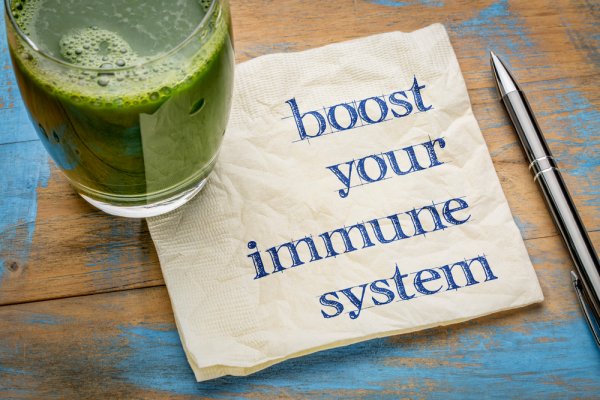

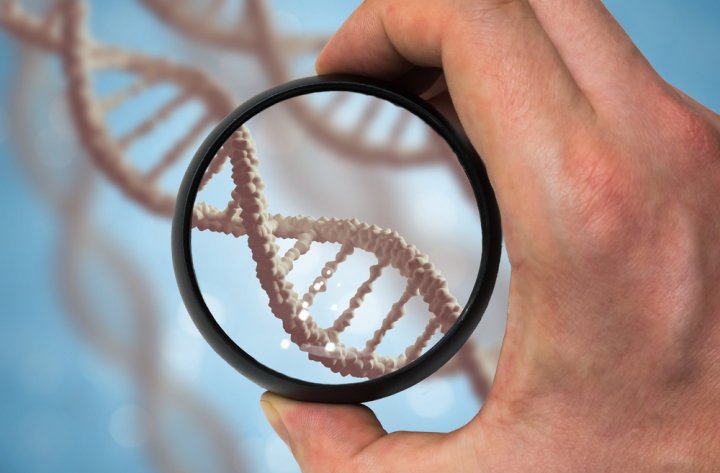
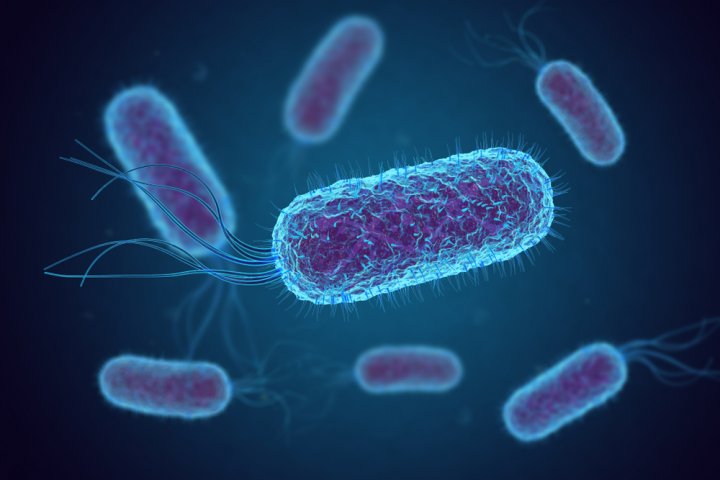





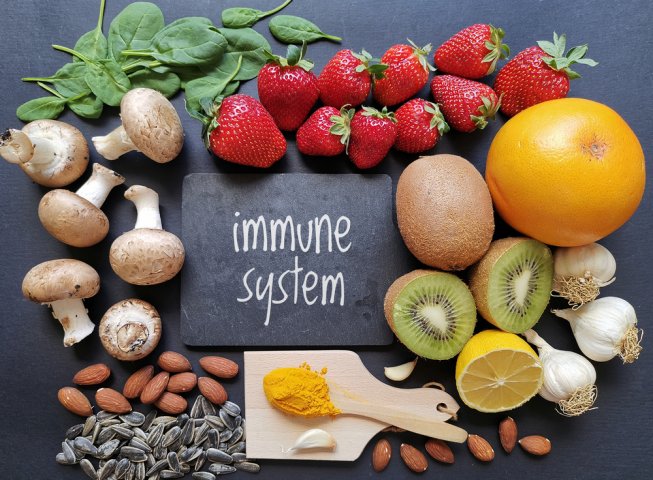








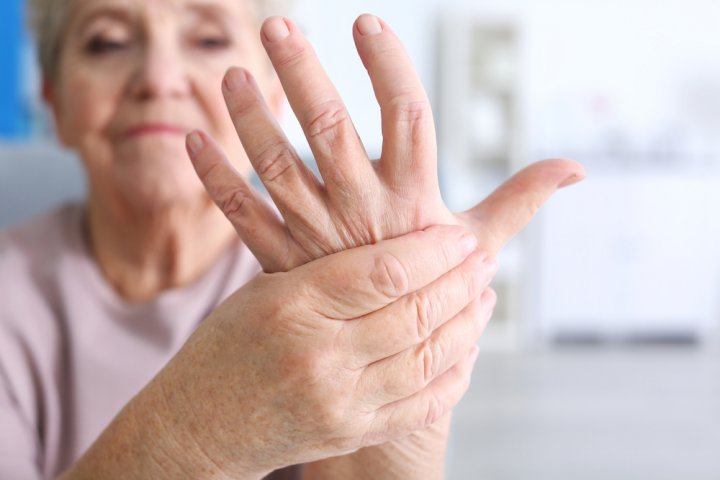


 Highlight the Best Facets of Your Incomparable Beauty: Discover the Best Face Highlighter Currently Available in India and Everything You Need to Know About Using Face Highlighters for Maximum Effect (2023)
Highlight the Best Facets of Your Incomparable Beauty: Discover the Best Face Highlighter Currently Available in India and Everything You Need to Know About Using Face Highlighters for Maximum Effect (2023)
 Forget the Blemishes and Get that Picture Perfect Flawless Radiance on Your Face: Check out the Best Foundations for Oily Skin Currently Available in India and Everything You Need to Know About Makeup Foundations (2023)
Forget the Blemishes and Get that Picture Perfect Flawless Radiance on Your Face: Check out the Best Foundations for Oily Skin Currently Available in India and Everything You Need to Know About Makeup Foundations (2023)
 Make Your Presence Felt Wherever You Go: Discover the Best Perfumes Under 2000 for Both Men and Women to Announce Your Arrival and Make Any Occasion Memorable (2023)
Make Your Presence Felt Wherever You Go: Discover the Best Perfumes Under 2000 for Both Men and Women to Announce Your Arrival and Make Any Occasion Memorable (2023)
 Protect Your Oily Skin from the Harmful Rays of the Sun: Discover the Best Gel Based Sunscreens for Oily Skin and Everything You Need to Know Before Buying One (2023)
Protect Your Oily Skin from the Harmful Rays of the Sun: Discover the Best Gel Based Sunscreens for Oily Skin and Everything You Need to Know Before Buying One (2023)
 Minor Blemishes and Wrinkles Affecting Your Confidence? Check out the Best BB Creams to Conceal Your Worries and Nourish Your Skin to Restore the Healthy, Radiant and Glowing Complexion Back Again (2023)
Minor Blemishes and Wrinkles Affecting Your Confidence? Check out the Best BB Creams to Conceal Your Worries and Nourish Your Skin to Restore the Healthy, Radiant and Glowing Complexion Back Again (2023)
